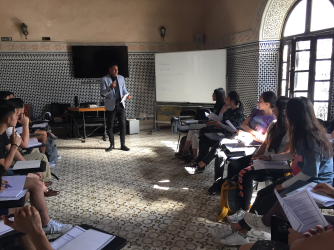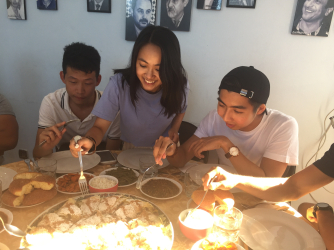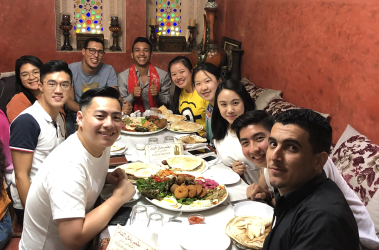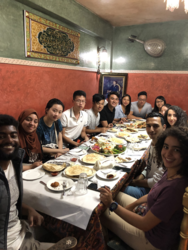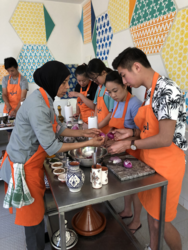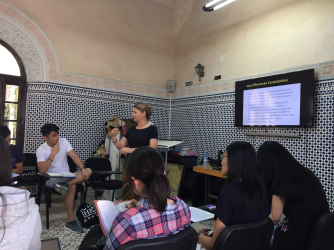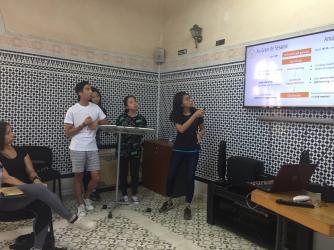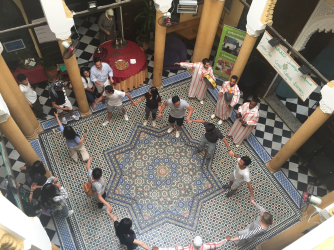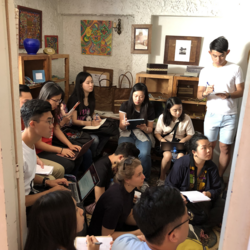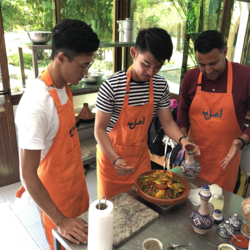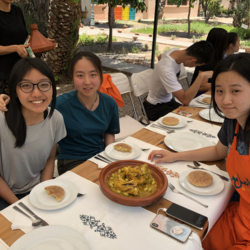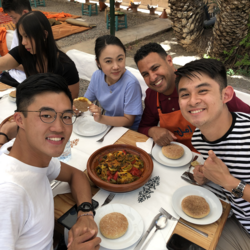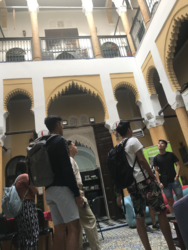Dialogue, Dinner, and Darija: Students Return to Morocco to Learn about the Country’s NGOs
02July2019
This June, Morningside College returned to Rabat for a third year to run its Morocco Service Learning Programme. Fifteen students spent ten days in Rabat and Marrakech during which they visited non-profit organizations and social enterprises, connected with fellow Moroccan university students, heard lectures by local leaders in law and politics, and even participated in a hands-on cooking class!
At the start of the programme, students attended orientation sessions to familiarize themselves with the service landscape, pick up survival phrases in the local Arabic dialect, Darija, and learn about gender and public spaces in Morocco. While in Rabat, students visited organizations including The Moroccan Association for Family Planning, a local non-profit focusing on reproductive health and rights, Au Grain de Sesame, a social enterprise working with women artisans to improve their craft skills and demand living wages, and Verdaterre, an early-stage social enterprise helping Moroccan landowners create more cultivable land in Morocco’s semi-arid climate. Students contextualized their visits by attending guest lectures alongside local public university students. Dr. Lahcen Haddad, former minister of tourism, delivered a lecture on Morocco’s environmental policy plan and the future of sustainability in the country. Stephanie Bordat, a human rights lawyer and founder of a non-profit advocating to end gender-based violence in Morocco, spoke with students about her organization’s accomplishments and the remaining challenges in prosecuting and preventing gender-based violence under the current legal system.
While in Marrakech, students visited Amal, a non-profit that empowers low-income women with restaurant training and job placement. While participating in a cooking class at Amal’s center, students learned how to make tajine, a traditional Moroccan slow-cooked dish, and spoke with the organization’s employees and some of its trainees.
At the end of the programme, students delivered group presentations to share their background research about what they had observed throughout the week and to set forward their own questions for further exploration. Students closed out the programme with a celebratory dinner, sweet mint tea and cookies, and a musical performance.

